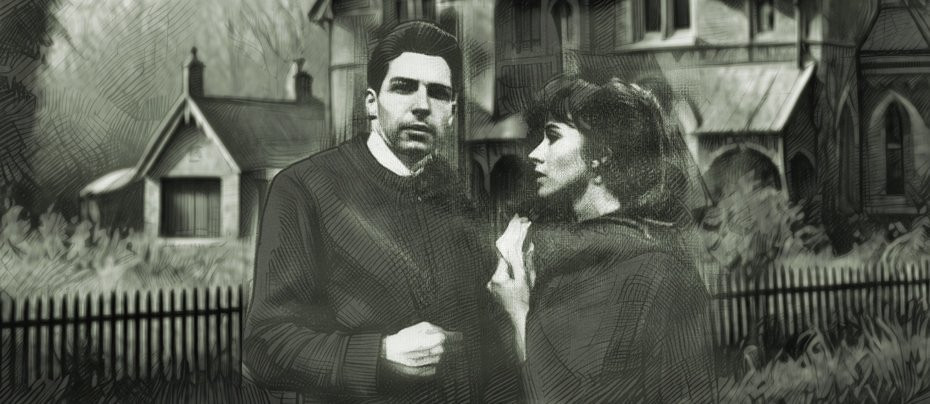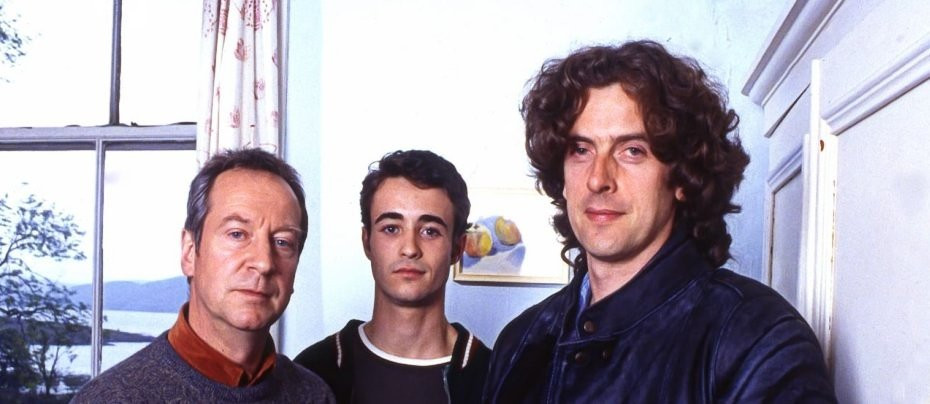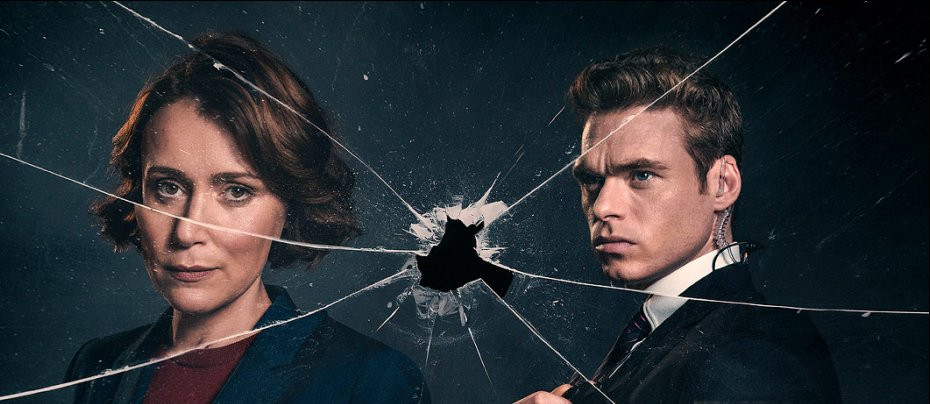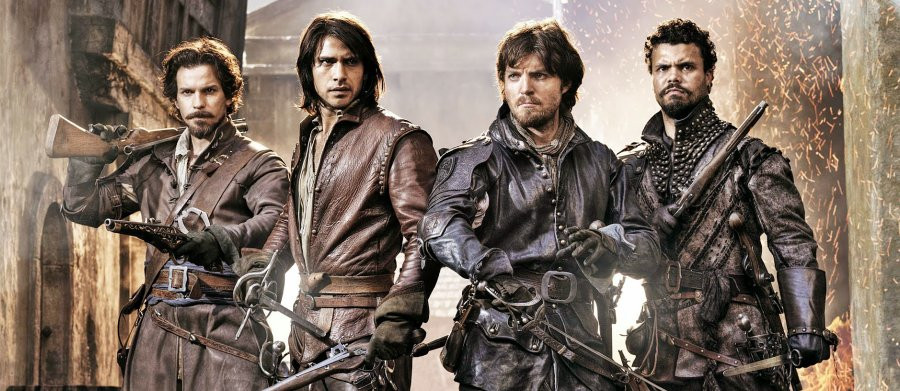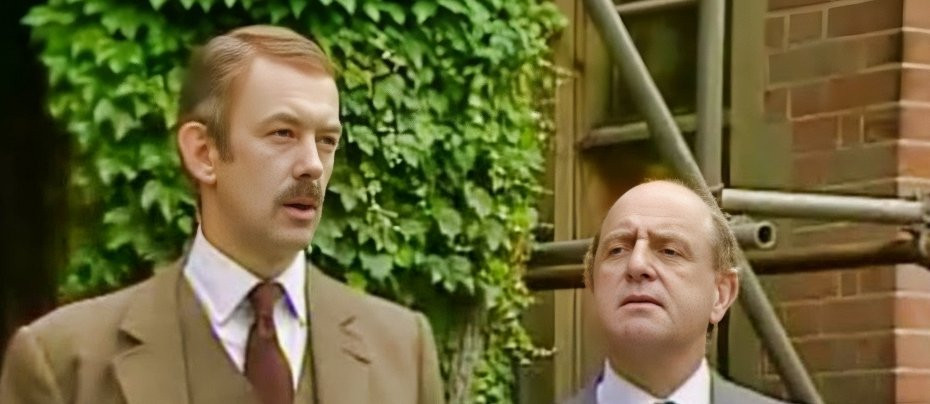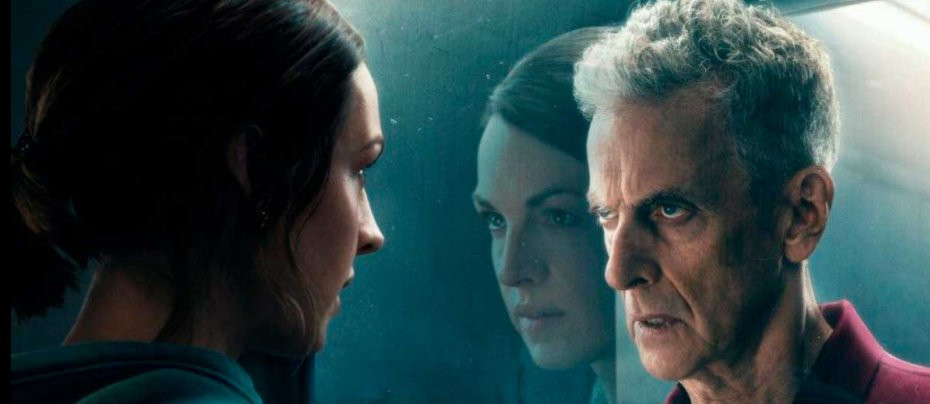
The Devil's Hour
2022 - United Kingdom‘the story becomes deeply compelling as we begin to fit the pieces together and see the whole picture - or rather we think we do’
The Devil's Hour is reviewed by John Winterson Richards
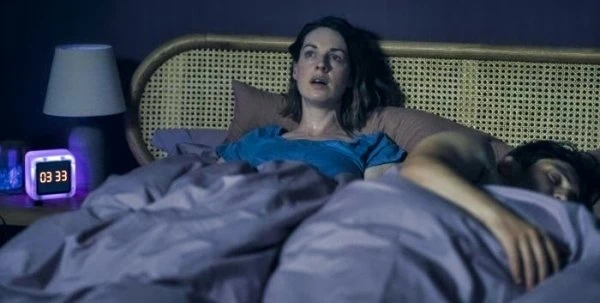
Jessica Raine plays Lucy Chambers, a senior child protection officer estranged from her husband and living in a new house, who finds herself waking up at exactly 3:33 every morning. The hour between three and four in the morning was traditionally known as "The Devil's Hour."
Lucy is not the only one who is having problems. Her only child, Isaac, played by Benjamin Chivers, claims to be seeing people who are not there. It is particularly spooky when he says one is standing right next to her.
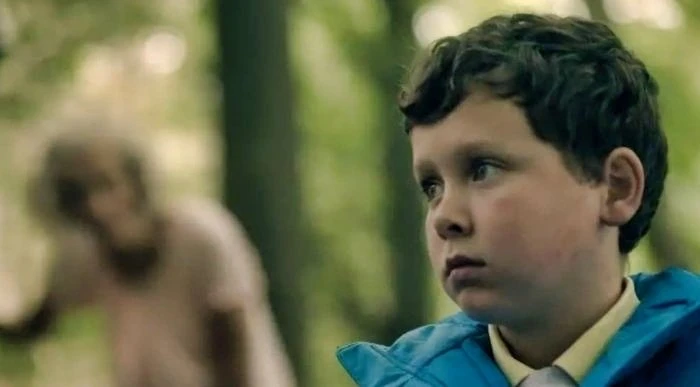
At this point we assume we are in "I see dead people" territory, especially since the perfectly cast Chivers gives off a definite Haley Joel Osment vibe. However, it turns out that the people he sees are very much alive and well, just somewhere else entirely when he sees them. Lucy herself also has flashes of people and things that are not as they really are. Although she takes her son to a psychiatrist, played by Meera Syal (Goodness Gracious Me), she says nothing about her own experiences.

Lucy is not a wholly sympathetic character. At the same time as withholding information that might help her son, she tends to talk over him in his sessions with his psychiatrist. She is trying hard to hide her own vulnerability. At work she appears to be caring and competent. At home she is immature. She continues to provide "booty calls" for her odious estranged husband, Mike, played by Phil Dunster, who is obviously taking advantage of her. As if her life was not complicated enough, she is also supervising the care of her mother, Sylvia, played by Barbara Marten, with whom she has had a troubled relationship and who is now suffering from progressive dementia. As with many such cases, the tragedy of the situation is in some ways increased by the fact that Sylvia sometimes has moments of lucidity. These can add to her confusion and distress, and to Lucy's, not least because Lucy can never be certain whether she is talking to a clear minded or a delusional woman. This turns out to be a major theme in the script and not just in Sylvia's character arc. Before the end we are going to be asking the same question about everything and everyone: what is real and what is delusion?
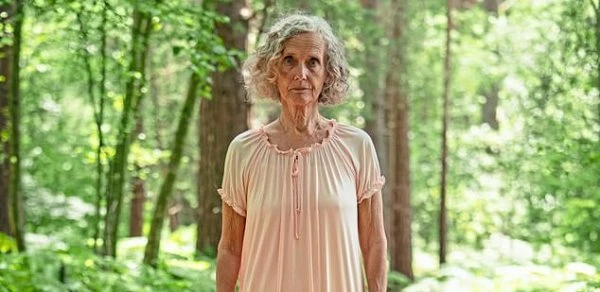
The sequential events in this timeline are incut with a "flash forward" to a future in which Lucy is meeting a self-confessed serial killer, Gideon Shepherd, played by Peter Capaldi. Why she should be doing this is not explained at first.
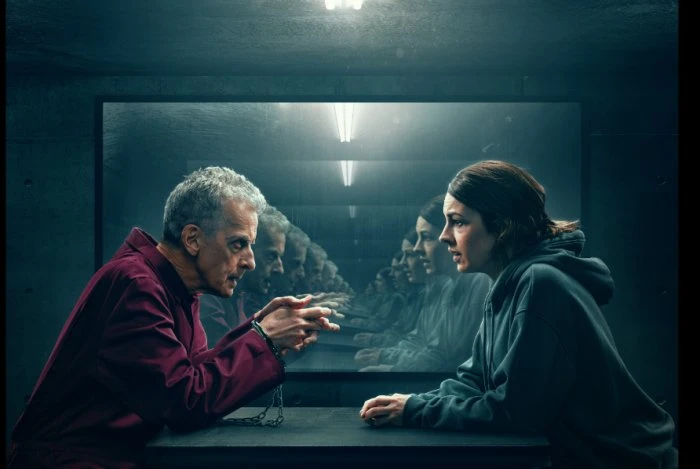
In that future she is accompanied by Detective Inspector Ravi Dhillon, played by Nikesh Patel. Back in the original timeline, Ravi is investigating homicides in partnership with his friend Detective Sergeant Nick Holness, an old style "copper's copper" played by Alex Ferns - far more likeable here than he was in in his most famous role a Little Mo's abusive husband in EastEnders. Ravi is somewhat uncomfortable investigating murders because he hates the sight of blood. He is more interested in the cold case of a little boy who went missing years previously.
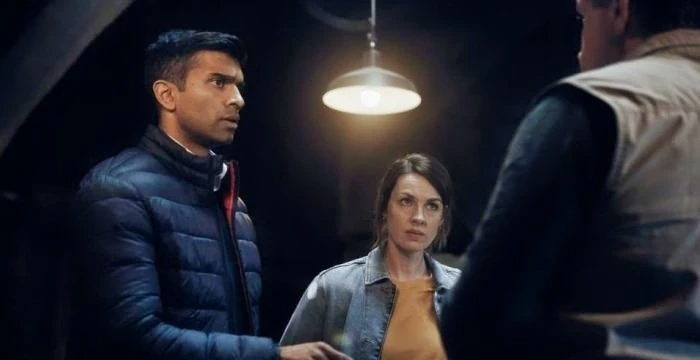
At first we seem to be watching three separate storylines and a number of subplots, but eventually everything is brought together quite cleverly and good reasons are provided why there should be connections between the various elements.
The script is the work of Tom Moran, an inexperienced television writer but a prize-winning novelist, supervised by Steven Moffat, a BBC stalwart best known for Doctor Who and Sherlock. The project was run by Hartswood Films, the production company founded by Moffat's late mother-in-law, Beryl Vertue, another BBC veteran.
There is indeed very much a BBC "feel" to the production. Although it was made for Amazon, it is an intimate little show. It lacks the big production values of Amazon's prestige projects like The Wheel of Time and The Lord of the Rings: The Rings of Power. In fact it comes across as decidedly cheap. Its strengths are its writing and its acting.
Moffat had already worked with Capaldi and Raine in Doctor Who - but they never shared an episode there. It was Moffat who selected Capaldi as the Twelfth Doctor and acted as his "showrunner" throughout Capaldi's tenure of the Tardis. Without knowing the details, it is not unreasonable to assume that it was therefore Moffat who secured Capaldi for The Devil's Hour.

Although his presence is nicely downplayed at first, it is Capaldi who makes the show. This is hardly a surprise since he has never been in a project to which he has not added value. He has had a wide ranging career from likeable juvenile support in the classic Local Hero to the scenery chewing epitome of the toxicity of contemporary British politics Malcolm Tucker in The Thick of It and In the Loop. These days he seems to enjoy playing more ambiguous characters - his Twelfth Doctor, by far the most fascinating since the revival, always seemed nicely on the edge: if he always came down on the side of good in the end, it never felt like a foregone conclusion. In The Devil's Hour his character is presented initially as a Hannibal Lecter, playing with his interrogators, but, of course, nothing is as it appears.
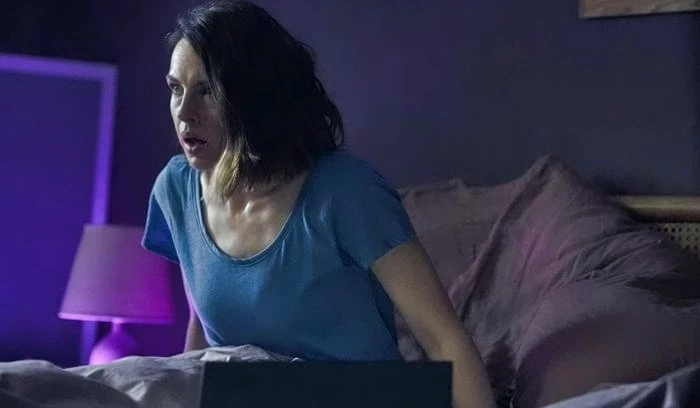
It is Raine (An Adventure in Space and Time and Call the Midwife) who does most of the heavy lifting until the final episode. It is a tribute to her skill that her character also retains a degree of ambiguity - it is never entirely clear whether we are meant to like her or not - at least she deserves the courtesy of assuming she was written that way deliberately. The supporting cast are faultless, with Marten especially poignant in her character's moments of relative clarity.
It has to be said that the show takes its time to develop. The first couple of episodes are very downbeat, and the supernatural elements are not as horrifying as the portrait they paint of lower middle class and underclass life in modern Britain. Is this how the British are now or is it just how television writers and producers, living in their own world, think we are?
However, things soon pick up, and the story becomes deeply compelling as we begin to fit the pieces together and see the whole picture - or rather we think we do. The final episode changes everything...
If you have not seen it, best stop reading at this point and come back when you have.
A lot of people really like the final episode and one can see why: Capaldi finally takes control and the story goes to some unexpected places.
Yet it has its flaws. There is an unnecessary insertion of the overused cliché of the religious character who turns out to be a hypocritical bully. They always do on television now, even if it is very rare in real life. It seems anti-religious bigotry is not only the last acceptable prejudice but practically compulsory in the entertainment media. Perhaps this is because the people working for them in these culturally divided times are unlikely to be well acquainted with many believers and most unlikely to be believers themselves. It comes out in a definite failure of authenticity.
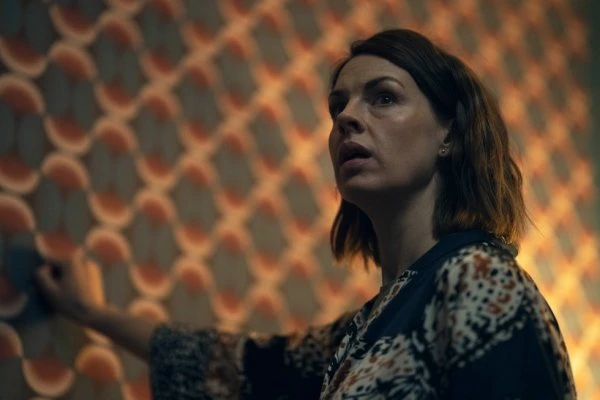
The main plotline itself is not beyond criticism. The facts being revealed seemed to be pointing towards the notion of many, perhaps infinite universes (as discussed, for example, in the cerebral Devs), a theory given a degree of academic credence by the fact that our own universe is so unlikely. Could it be that Isaac's visions were glimpses of alternative universes created because slightly different decisions were taken? This would have been an intellectually satisfying premise, but The Devil's Hour takes another direction. It offers instead something similar to Nietzsche's purely speculative theory of "eternal recurrence." Dramatically the result is reminiscent of one of Capaldi's best episodes of Doctor Who - a darker version of Groundhog Day - but intellectually it lacks coherence and leaves too much unexplained.
It also fails to satisfy emotionally, because it implies that a character in whom we are heavily invested does not really exist and indeed that the whole story up to this point is essentially meaningless. Worse than that, nasty Mike, whose only redeeming feature is a certain brutal honestly, has been proved right in point of fact - even if that cannot excuse his actions.
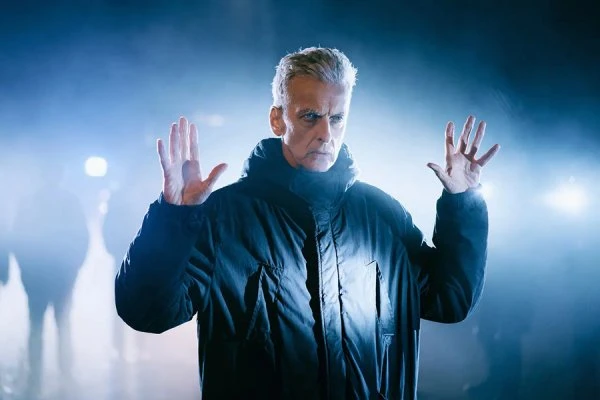
Happily things are not going to be left there. Shortly after the show's successful launch on Amazon it was announced that two more seasons have been commissioned. Given the nature of the ending, one suspects that was anticipated. It offers no resolution but works well as a "cliffhanger." It leaves a lot of options open for where the story might go. One can only hope that it does not simply go over old ground and actually offers some explanations. Lucy may be a completely different character, no doubt with more agency than she has had so far, and we can surely expect Capaldi to take a more active role. If so, there might be something special here.
Seen this show? How do you rate it?
Seen this show? How do you rate it?
Published on December 14th, 2022. Written by John Winterson Richards for Television Heaven.




